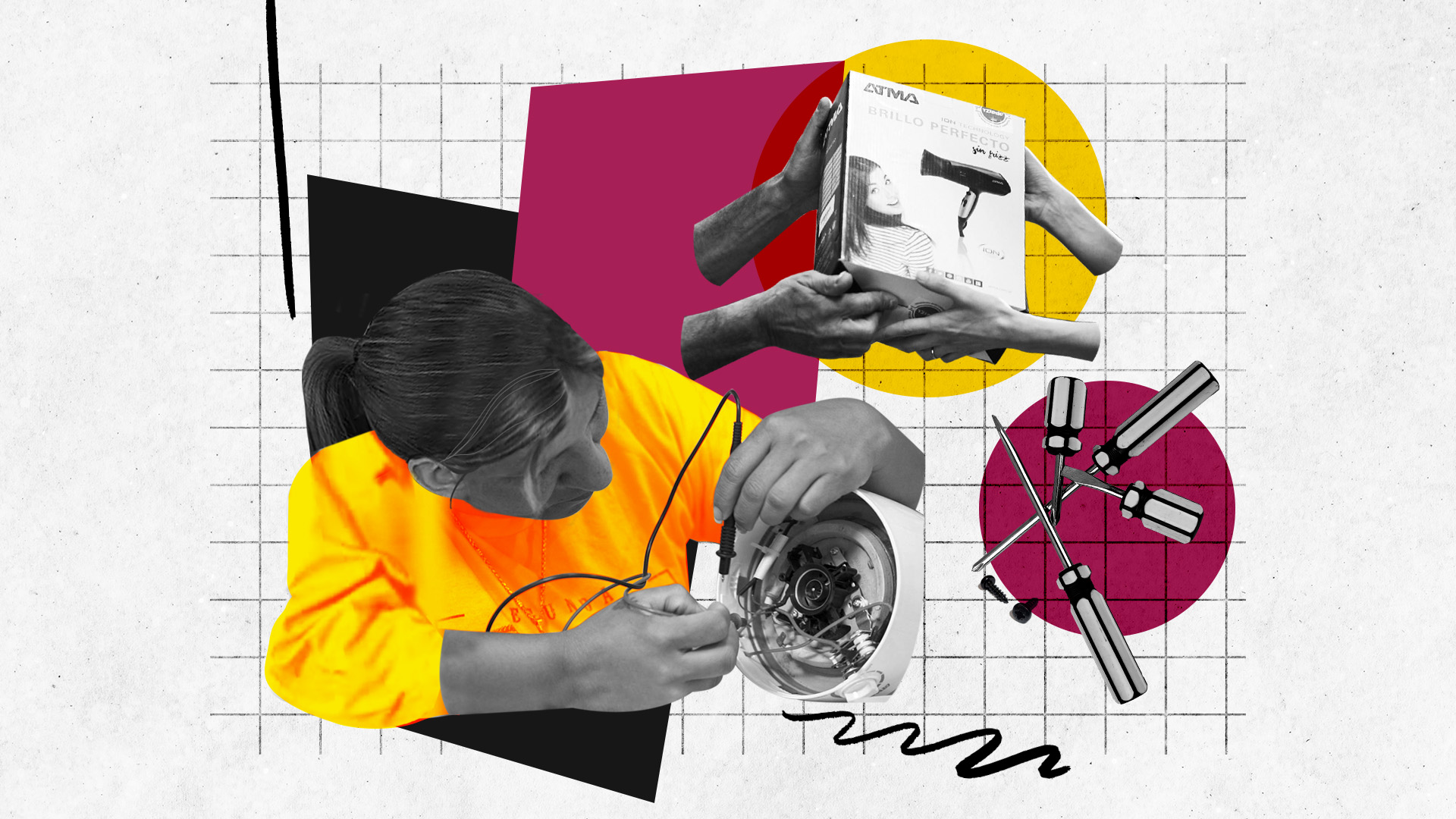“The massive disposal of household appliances has a direct and negative effect on environmental pollution. Extending its useful life with high quality standards and at the same time generating a value chain with social impact with the entry of people who are experiencing situations of extreme vulnerability into the labor market is a comprehensive solution.” The speaker is Edy Att, Director of Development of the Tzedaká Foundation and Electrosolidario, a program that is the result of the joining forces of the Tzedaká Foundation and the Newsan company with Mercado Libre and Cooperativa Bellaflor as strategic allies.
Electrosolidario was born in 2020 as an innovative fundraising project to support the social programs of the Tzedaká Foundation, a civil society organization that has been working since 1991 to improve the living conditions of the vulnerable population through six well-established programs. The foundation already had a social enterprise, Tzédek, for the commercialization of donations of clothing, furniture, books and other merchandise. Having the organization and logistics already consolidated in this program was what led the Newsan company to choose Tzédek as a partner for Electrosolidario: the first online sales platform for reconditioned appliances. Through its competitive prices, the program also democratizes access to quality appliances.
“A refurbished product (or refurbished, the term in English that is usually identified with what recovers the specifications of the original manufacture) is not new, but it is conditioned to function as such. It may have small aesthetic details that do not affect its performance at all. From Electrosolidario we audit each of the products more than once and thus guarantee their excellent performance, and in any case they have a ninety-day guarantee,” explains Att.
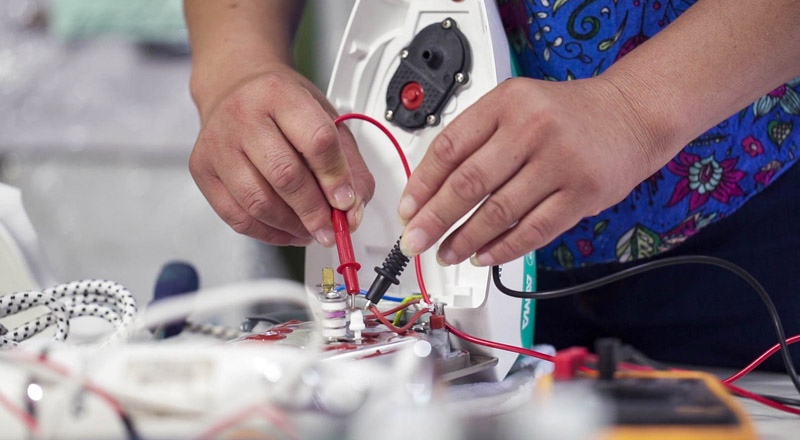
For its part, Newsan —a private Argentine group that manufactures, imports and distributes household appliances and exports fish— created Newsan IN in 2016, a business model based on the circular economy that promotes the responsible consumption, responds to the problem of electrical waste and electronics by extending the useful life of household appliances and allowing social inclusion for those people who, for various reasons, encountered barriers to accessing the labor market.
During 2018, the company selected and trained people to fix appliances and develop their own business. Later, these men and women repairers were united by geographical area in productive units in which they work as a team. Today these production units are located in four points in the province of Buenos Aires: Victoria, Virrey del Pino, Bernal Oeste and San Martín.
“Newsan IN began with a training cycle of more than 380 hours in which 200 participants acquired tools for appliance repair and business management skills. During the process, the participants launched four productive enterprises, which today operate in the province of Buenos Aires”, explains Marcela Cominelli, manager of the Legal, Public Affairs and Sustainability Area of Newsan.
“In 2020, the pandemic context accelerated digital transformation and represented a growth opportunity for Newsan IN. We were able to adapt and digitize the projects with impact. This is how, together with Fundación Tzedaká, we developed electrosolidario.com.ar, the first marketplace for 100% reconditioned products. Through its commercialization, we were able to keep the productive units active during the pandemic and the foundation exceeded 40 million pesos in billing for reconditioned appliances, reaching more than 12,000 responsible consumers.”
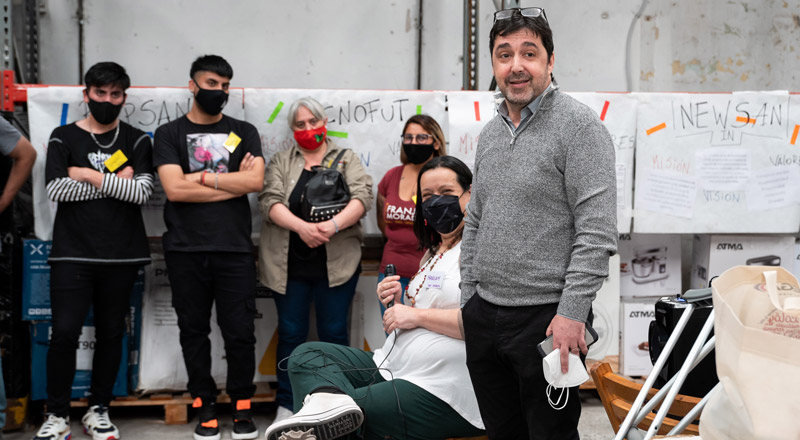
The circle model
In this model, companies donate appliances to be repaired, instead of turning them into electronic waste. They are then distributed among the production units where refurbished equipment is generated to extend its useful life.
“The reconditioned product is marketed through the Tzédek store in Mercado Libre, which is our main sales channel and another of Electrosolidario's strategic partners. It allows us to market our products without charging us commission and offer six installments without interest. The client accesses our products through the platform and has a 90-day guarantee from the time they receive it”, explains Att.
Newsan donates different types of products: discontinued or exhibition, missing, products returned within 48 hours of purchase because they did not meet expectations or due to failures in their 12-month warranty period. All are sent to the production units where the repairers define which equipment is fixed and which is used for spare parts.
In addition, today the program receives household appliances from Supermayorista Vital and is working to add more alliances with companies.
The auditors who supervise the repair processes and their results and the Bellaflor Cooperative, responsible for the final disposal of the remaining waste, also participate in this chain.
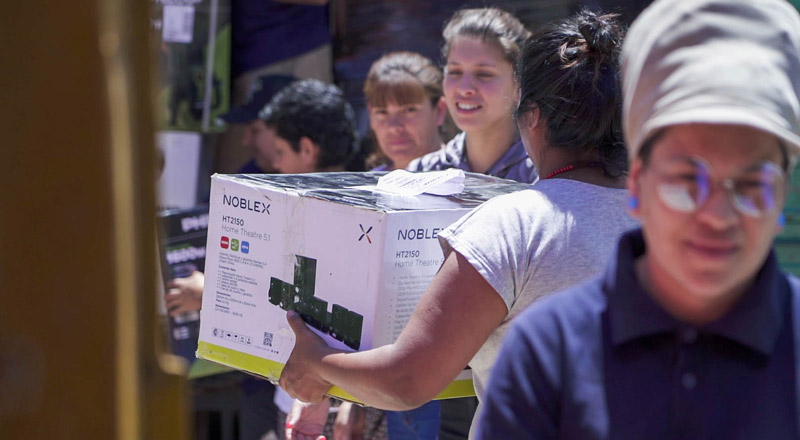
Empower people and communities
The repairers come from communities with some condition of vulnerability: they are over 45 years old, trans people, young people under 24 who have suffered problems associated with gender violence, are people with difficulty accessing employment or with criminal proceedings. In 2021, Newsan IN carried out a new cycle of training to promote the development of skills for the sale of recovered and repaired products. The training was designed to boost neighborhood economies, promote self-employment, contribute to reducing the gender gap and improve the quality of life of consumers. For this reason, women in vulnerable situations were invited to receive support and mentoring to form six new sales units.
“I look back and where I am today, as part of a productive unit, and sometimes I can't believe it. I went through many beautiful things in the course of this project and today I am here. That's why I tell my nephews —of which there are many— to never stop chasing their dreams, that everything comes”. Who speaks is Clara Suárez, 41 years old. “I was born in the Chaco where we harvested cotton with my family. We were twelve brothers and we had difficult moments. When I was ten years old we came to Buenos Aires and I continued studying here, I was able to take many courses, I trained. I finished high school when I grew up and I am going to continue studying to continue growing.”
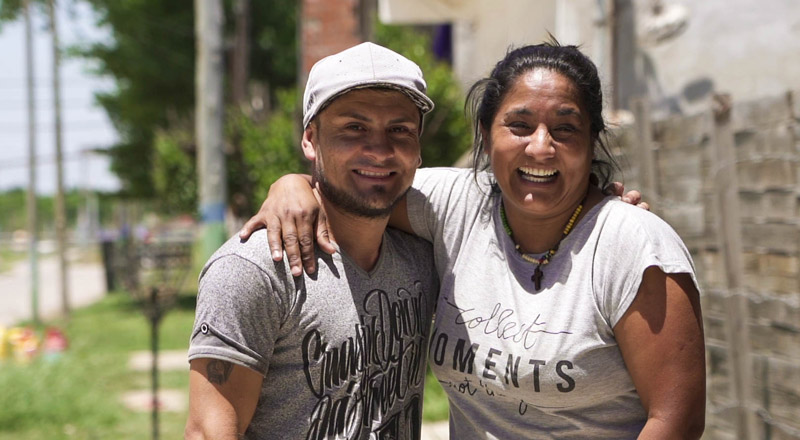
Clara lives in the Sarmiento de Virrey del Pino neighborhood, La Matanza district, and is part of the Electrotec production unit (they all have names). “We are eight members who trained together. We repair and sell first and second quality appliances. Somehow, Electrosolidario improved many things in the neighborhood where I live. When we started in the production unit we repaired and sold. There we added Electrosolidario and today we are one of the productive units that sells the most. They are excellent quality products at a very good price. I am very proud to be part of this project and would advise others to join the program; that they be part They will not regret it, ”she says.
Responsible consumers
Electrosolidario is designed from a triple impact perspective that not only allows it to be scaled, but also replicable to other work groups, organizations and industries. For this, it is essential to understand what the business opportunity is, what are the needs to cover and what skills to develop so that this circular model is sustainable and generates shared value.
Under the premises of achieving a more equitable world and making people's lives easier, Newsan and Tzedaká are the first organizations to carry out a project of these characteristics in Argentina. Being pioneers in the reconditioning of household appliances with a social impact provided them with key knowledge that ranges from alliances with companies and civil society organizations, to training and detection of communities and the necessary processes to carry out a project of these characteristics.
For the project to continue growing, Electrosolidario seeks to spread its spirit and add more member companies that donate disused appliances.
“It is also important to cultivate a consumer who is aware of their purchase, who questions where their products come from, what the value chains are, and who prioritizes a purchase with low environmental impact and high social impact,” says Att, from Tzedaká .
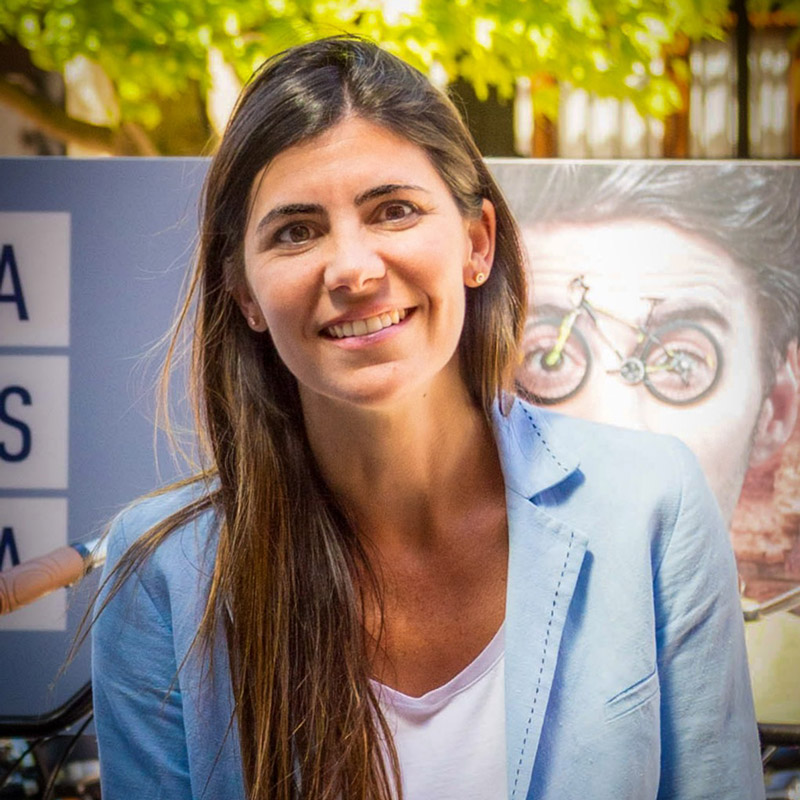
Newsan IN and Electrosolidario's business model generates a reduction in WEEE (waste from electrical and electronic equipment). And adds Cominelli, from Newsan: “Today the consumer is increasingly aware of the impact that their decisions generate. Through this new way of shopping, more and more people can become part of the circular economy cycle.”
***
This article is part of the Soluciones para América Latina, platform, an alliance between INFOBAE and RED/ACCION, and was originally published on March 28, 2022.
You can read this content thanks to hundreds of readers who support our human journalism with their monthly support ✊. Bank an open, participatory and constructive journalism: join as a co-responsible member.

